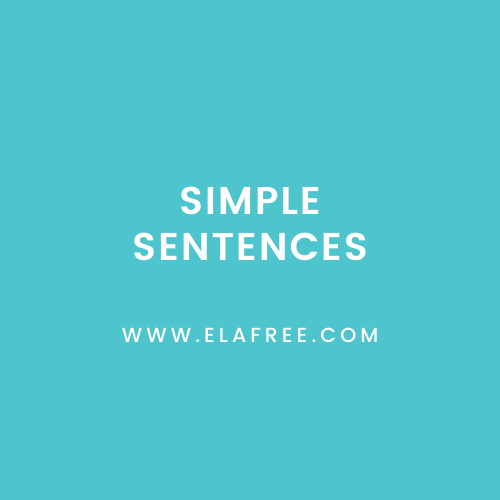Simple Sentences
The ability to construct and understand simple sentences is a foundational skill in English language arts. For young learners, understanding the basic components of sentences and how they function is crucial to building strong writing and communication skills. This blog post presents a quiz designed for Grade 1 students to learn about simple sentences in a fun and interactive way. The quiz covers basic information such as subject-verb agreement, capitalization and punctuation, and the formation of complete sentences. By introducing these concepts early on, students can develop a solid foundation in language arts that will serve them throughout their academic careers. Our hope is that this quiz will be a valuable resource for parents and educators to teach young students the essential skills needed for effective communication through simple sentences.
- They only have one subject and one verb. For example, "John runs."
- They express a complete thought. For example: "The dog barked."
- They do not have any dependent clauses. A dependent clause starts with a subordinating word like because, when, or if.
- They often have modifiers like adjectives or adverbs. For example, "The big dog barked loudly."
- Simple sentences can be short or long, but they only have one clause with a subject and a verb.
Simple Sentences Quiz
ٍSimple Sentences Quizizz Quiz
References
- Westby, Carol, et al. "Grammatical Understanding, Literacy, and Narrative Discourse: Relations between Skills in School-Age Children." Child Language Teaching and Therapy 36.3 (2020): 259-289.
- Justice, Laura M., et al. "Print Referencing: An Emergent Literacy Enhancement Strategy and Its Clinical Applications." Language, Speech, and Hearing Services in Schools 36.2 (2005): 185-193.

